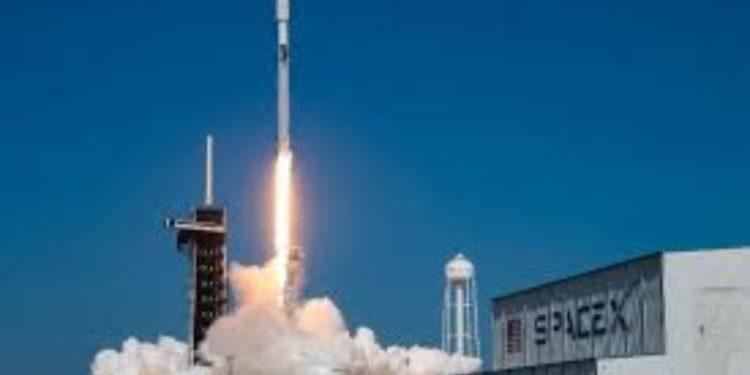On November 11, 2023, SpaceX’s Falcon 9 rocket successfully carried the Koreasat-6A communication satellite into orbit. The launch took place at the Cape Canaveral Space Force Station in Florida. Developed for KT SAT, South Korea’s leading satellite communications provider, Koreasat-6A is designed to deliver broadcast and fixed satellite services across the nation.
This launch represents KT SAT’s first new satellite in nearly seven years, following the launches of Mugunghwa satellites 5A and 7 in 2017.
As the prime contractor, Thales Alenia Space handled the satellite’s design, construction, integration, and testing. The company will also manage the satellite’s positioning and in-orbit operations during its 15-year service life, providing ongoing operational support.
About eight minutes into the flight, the Falcon 9’s booster successfully landed back at Cape Canaveral’s Landing Zone 1, while the rocket’s upper stage continued its journey to deploy the satellite into a geosynchronous transfer orbit. The Koreasat-6A satellite separated from the rocket approximately 35 minutes after launch. It will replace the Koreasat-6 satellite and provide fixed and broadcast satellite services across South Korea.
Koreasat-6A was designed to enhance South Korea’s satellite communication capabilities. The satellite is built on Thales Alenia Space’s Spacebus 4000B2 platform, with six broadcast transponders and 20 fixed satellite service (FSS) transponders. It will also improve the Korea Augmentation Satellite System (KASS) by correcting GPS location errors in real time to improve navigation accuracy.
The system will be critical for air navigation, especially for the safe takeoff and landing of aircraft. The satellite is expected to reach its service orbit within a month, with official operations set to begin in the first quarter of 2024. The service will eventually expand to benefit overland transportation, shipping, and location-based services.
South Korea’s satellite operator, KT SAT, will manage the Koreasat-6A for its expected 15-year lifespan. It will utilize its self-developed satellite monitoring system, KOSMOS, for in-orbit testing, which will be completed by the end of 2023.
The launch of Koreasat-6A marks an important milestone for KT SAT, which owns and operates all of South Korea’s geostationary communication satellites. The satellite is the fifth in KT SAT’s fleet and follows the launches of Koreasat-5A and Koreasat-7 in 2017.
KT SAT provides satellite communication services across Asia, the Middle East, and Africa. The company has been working to expand its reach as a multi-orbit satellite provider. While its geostationary satellites, such as Koreasat-6A, offer stable communication services from an altitude of 35,000 kilometers, their data transmission speeds are slower compared to Starlink’s low Earth orbit (LEO) satellites, which operate at much lower altitudes of 330-570 km. Although Starlink’s coverage is smaller, it offers faster data speeds at a significantly lower monthly service fee.
KT SAT’s advanced satellite monitoring system, KOSMOS, supports big data analysis to detect and address potential satellite malfunctions promptly. This system ensures stable communication services for KT SAT’s domestic customers, including military, government, and broadcasters. KT SAT CEO Seo Young-soo highlighted that the Koreasat-6A launch strengthens the company’s geostationary service capabilities, and he expressed plans to integrate this with future low Earth orbit satellite services to enhance its competitive edge in the satellite business.







